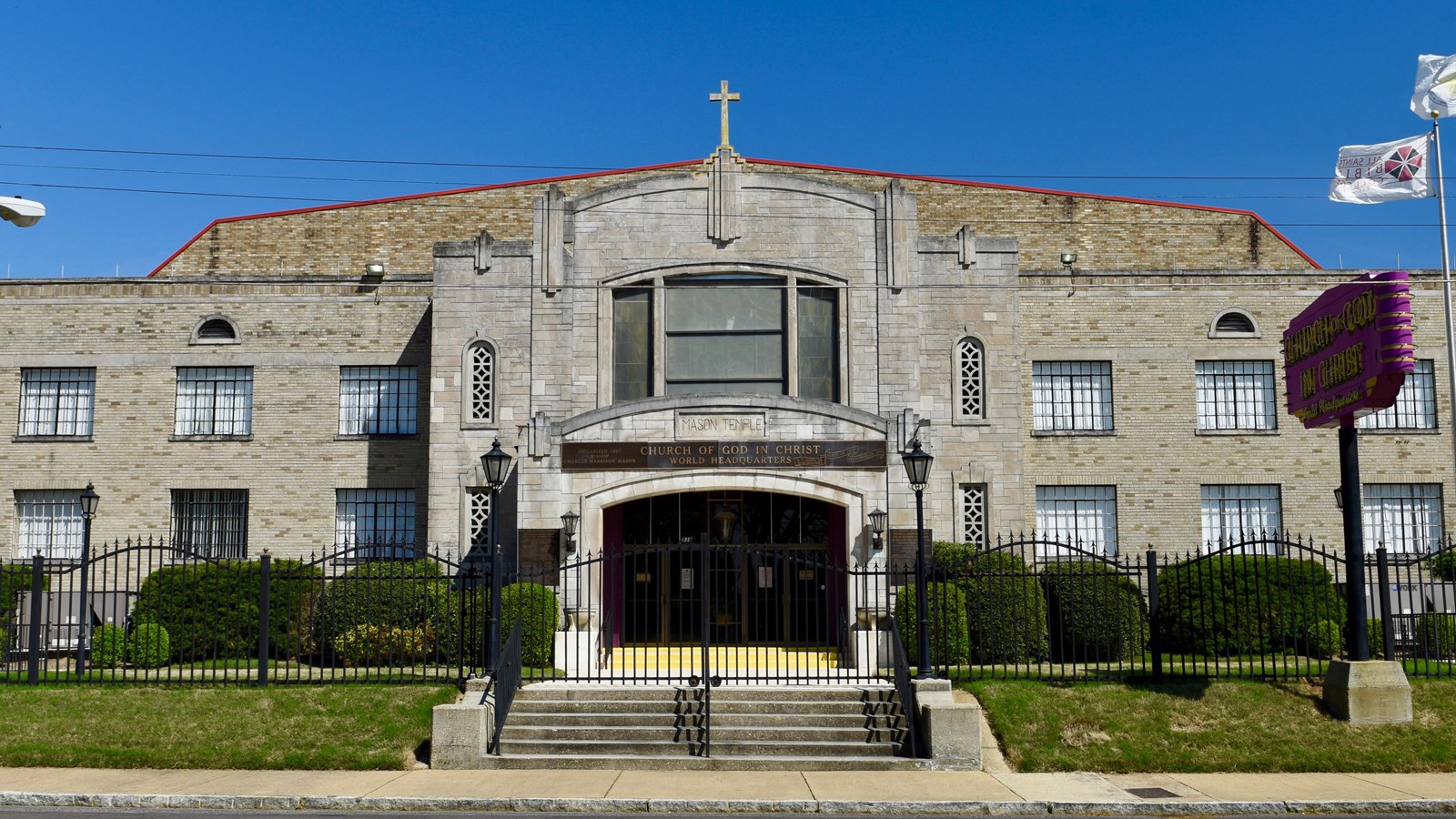Last updated: May 9, 2020
Place
Tennessee: Mason Temple Memphis

By Jim Roberts, CC BY-SA 4.0, https://commons.wikimedia.org/w/index.php?curid=57835029
Well, I don't know what will happen now. We've got some difficult days ahead. But it doesn't matter with me now. Because I've been to the mountaintop. And I don't mind. Like anybody, I would like to live a long life. Longevity has its place. But I'm not concerned about that now. I just want to do God's will. And He's allowed me to go up to the mountain. And I've looked over. And I've seen the promised land. I may not get there with you. But I want you to know tonight, that we, as a people will get to the promised land.
-Martin Luther King, Jr.
Martin Luther King, Jr., delivered his prophetic "Mountaintop" speech in this church in Memphis, Tennessee, on the eve of his assassination--April 3, 1968.
Mason Temple served as a focal point of civil rights activities in Memphis during the 1950s and 1960s. Mason Temple was built between 1940 and 1945 as the administrative and spiritual center of the Church of God in Christ, the second largest black denomination. The temple is the centerpiece of a group of six buildings that form the church's world headquarters. Mason Temple is a vast concrete building capable of seating 7,500 people on two levels. The temple, designed with simplified Art Moderne styling and detail, was constructed for regular services as well as to house the annual national convention of church representatives.
King, Abernathy, Andrew Young and other black leaders had come to Memphis to support 1,300 striking sanitation workers who met regularly at the church. Their grievances included unfair working conditions (on rainy days, black workers had to return home without pay while paid white supervisors remained on the job, and black workers were given only one uniform and no place in which to change clothes), and poor pay (the highest-paid black worker could not hope to earn more than $70 a week). Following a bloody confrontation between marching strikers and police the week before, a court injunction had been issued banning further protests. King hoped their planned march would overturn the court injunction.
Visit the National Park Service We Shall Overcome travel itinerary to learn more about the civil rights movement themes and histories. Also, be sure to check out Civil Rights subject site.
